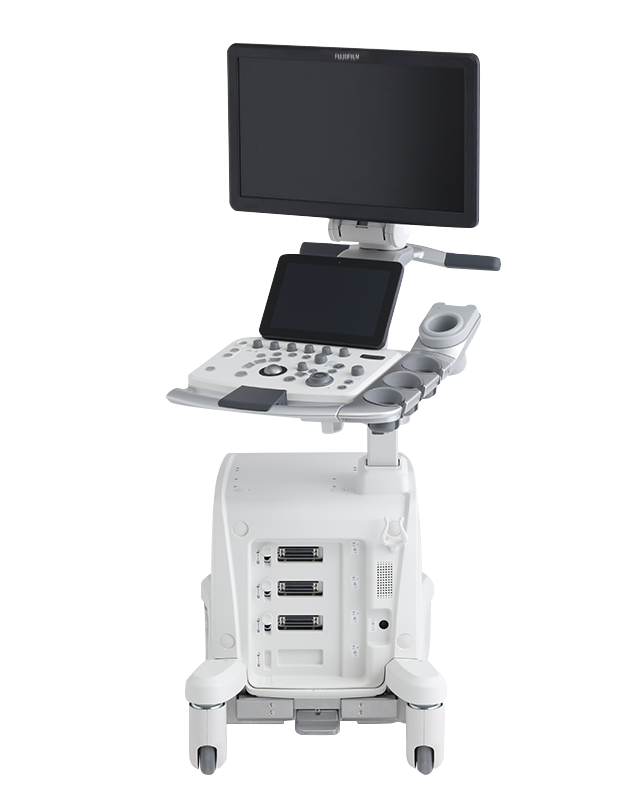Sonography
Regular breast screenings are an important step towards a healthy body. It is recommended to get an examination once a year after any breast surgery such as mastopexy, gynecomastia, augmentation or reduction because it can detect changes in the tissues that, if ignored, can lead to serious consequences.
What is sonography?
A sonogram, ultrasound or just USG (for ultrasonography) ia a tool that uses ultrasound waves to image the internal structures of the breast. Sonographies are painless, safe and risk-free.
What technique is used?
The Fujifilm Arietta 50 is one of the best quality ultrasounds in sonography due to its innovative technical design. It produces sonograms that provide valuable information needed to diagnose and treat a number of diseases. Ultrasound examinations are not invasive, so there is nothing to worry about and you do not have to prepare for an actual breast sonography.
How are sonographies performed?
Our clinic’s sonograms are produced by an experienced certified radiologist. You will undress your upper body so that both your breasts and armpits are exposed. You will be lying down on the examination table the entire time, especially on your back, and the radiologist may ask you to put your hands behind your head for better accessibility to the area to be screened. A translucent gel will then be applied to improve contact between the body and the ultrasound transducer. It is water-based and can be easily removed from your skin or any clothing you are wearing. Following the radiologist’s instructions, you will rotate yourself first right and then left so that the transducer takes a sonogram of all the necessary areas around the bust.
Because it is taking place in a sensitive area, you may feel pressure or minor discomfort at places, but a sonography itself is not painful. It takes about 15 minutes and, once completed, you can perform any activity without restrictions.
Am I the right candidate for a sonography?
Any woman between 20 and 40 years of age should have a breast ultrasound annually as part of a preventive check-up. You should definitely not postpone it if you have a family history of breast cancer on your mother’s side, are taking hormonal contraceptives or in hormone replacement therapy during menopause.
What is the benefit of a USG over other diagnostic imaging techniques?
imaging techniques?
- Ultrasounds are a fast, comfortable method for both patients and doctors
- There is no irradiation involved
- Sonographies are used as an adjunctive method in some invasive diagnostic procedures
- Ultrasounds are generally considered to be safe
Why did I opt for a sonography?
- Guaranteed safe with no health risks
- Painless and non-invasive
- It can be used in addition to a mammography
- It is an aid for diagnosing suspected disease changes, such as a lump on the breast, breast pain or other irregularity
- The current condition of implants can be assessed




